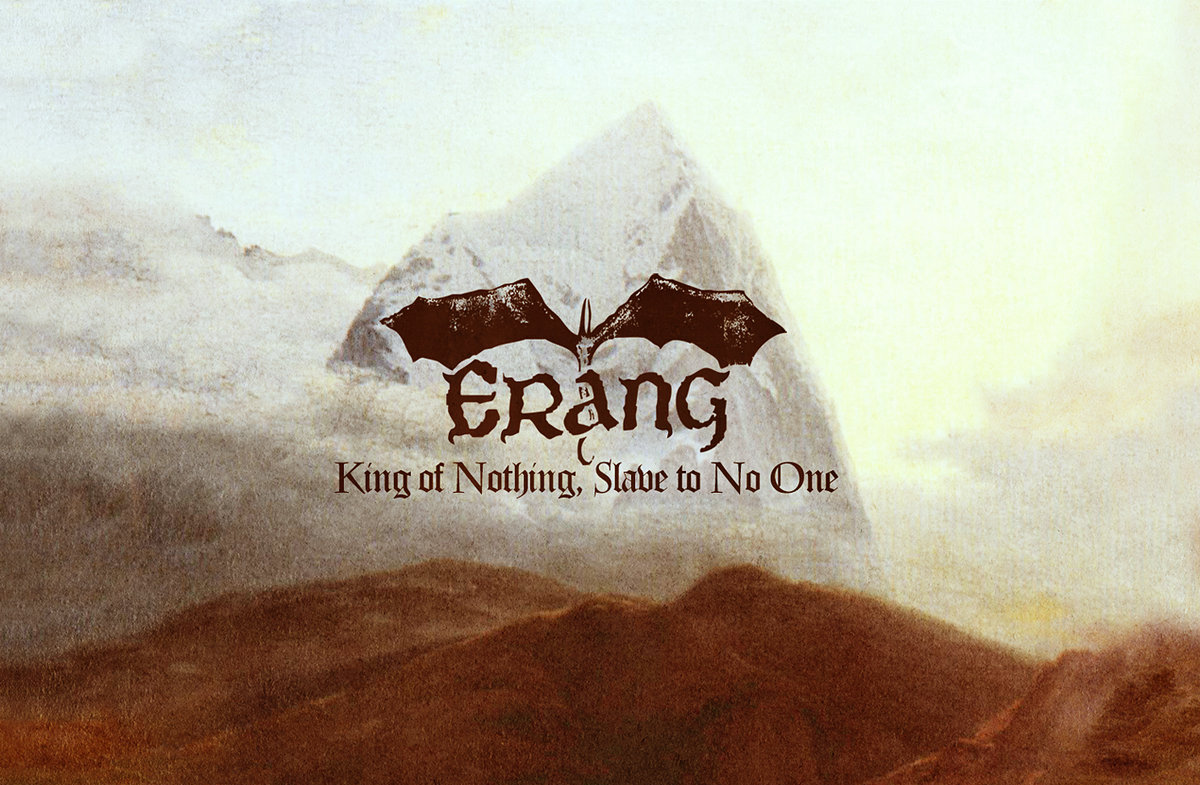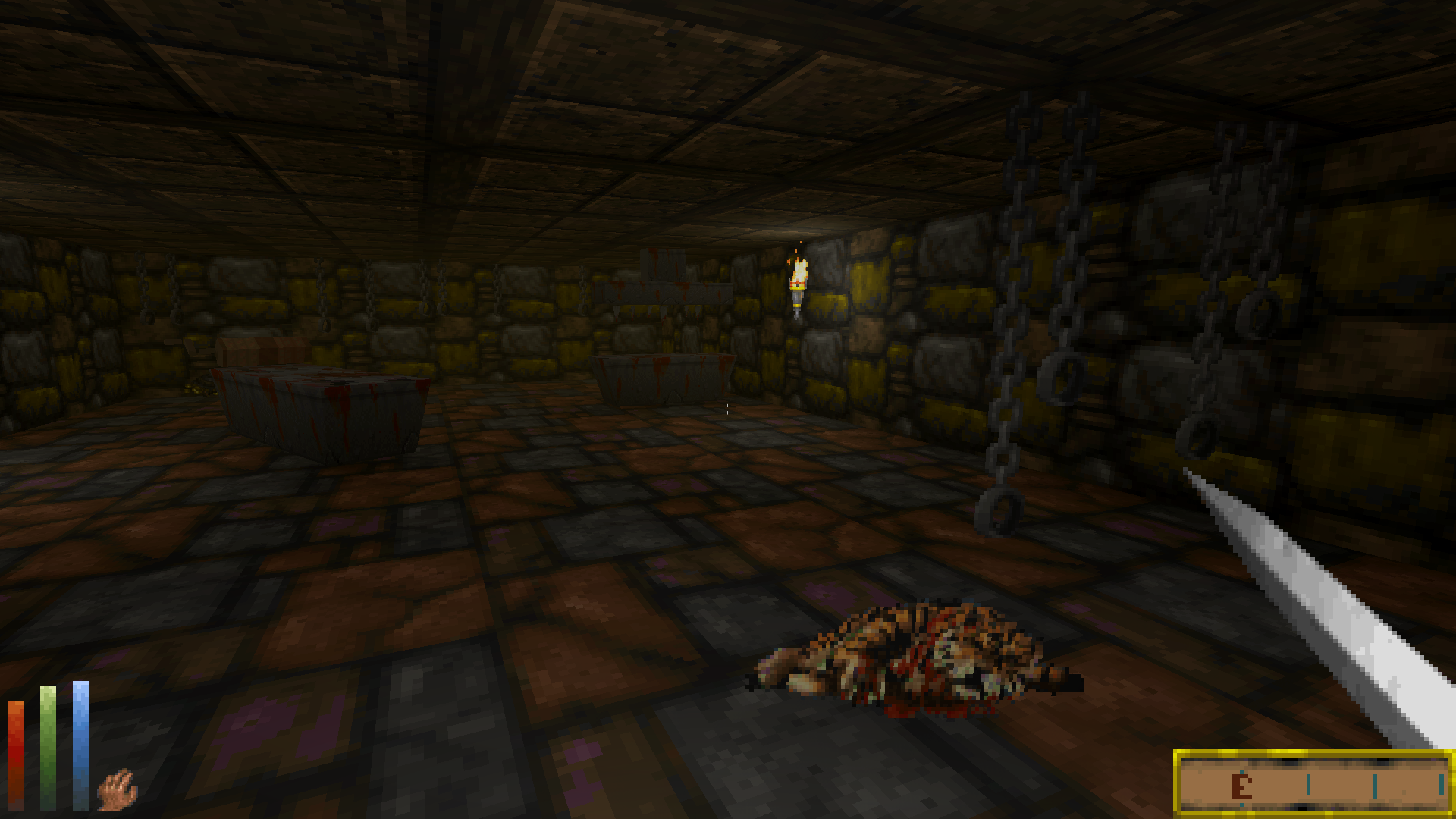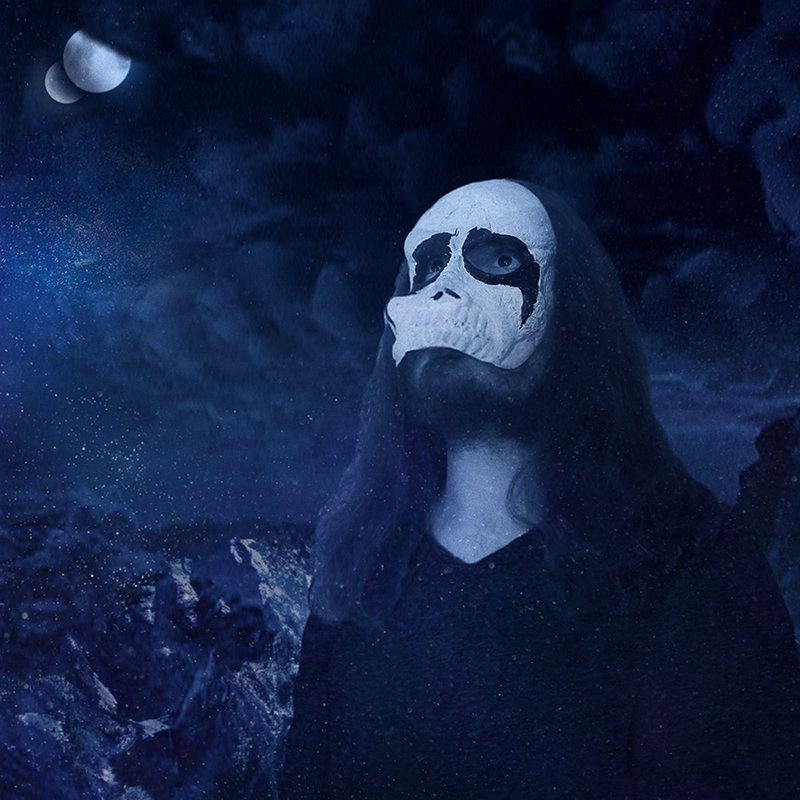Exploring Dungeon Synth: Music, RPGs, and Nostalgia
Unpacking a music genre's ties to retro gaming with dungeon synth artist Erang

Long, dark stone corridors. A distant echo of a drip, or perhaps a squelch. A haunting melody played on a brass instrument, with an uncanny, stiff lifelessness to the notes. A thick guidebook filled with rough sketches of swords, amulets, creatures, and villages.
If you’ve ever played an '80s or '90s roleplaying game, these are likely the images and sounds conjured by those memories. Games steeped in the aesthetic of medieval fantasy, brought to life not by the simple graphics of the day, but by the ambient echoes of the soundtrack to your dungeon-crawling.
If you find yourself craving a nostalgic hit for the RPGs of this vintage, you might hit up Google and stumble upon dungeon synth - a ‘dark ambient’ genre with epic fantasy landscapes plastered across their artwork and similarly medieval folk influences in the tracks. ‘Perfect!’ you might think, ‘an entire genre dedicated to '90s RPG music!’

And then you dig a little deeper. You discover that not only is this music scene not always receptive to the idea of being compared to video game music, but that it is actually a part of the black metal scene.
Things are getting weird. It’s time to investigate further.
Delving into the history of dungeon synth, perhaps by stumbling across the encyclopaedic Dungeon Synth Blog, you will likely quickly discover the two most well-known progenitors of dungeon synth music: Mortiis and Burzum. Both are figures from the early Norwegian black metal scene, Mortiis having played in Emperor before starting his own project, and the man behind Burzum (Varg Vikernes) infamously played in Mayhem before murdering the band’s guitarist. Dungeon synth came from a very dark place, inspired by a music genre driven by atmosphere and gloom.
These early albums were created in the mid-to-late '90s, alongside the golden age of CRPGs, and yet they seem to have no direct link to video games at all. Mortiis would go on record to state that he is ‘confused about all the video game stuff’. In an interview with the Dungeon Synth Zine, Mortiis seems almost dismayed by the level of video game influence:
"When I started out, and I’m not telling people to follow my rules, because that’s how music works. It’s supposed to evolve, but video games had nothing to do with any of it. It was all still about black metal darkness. I don’t quite understand the fascination with video games and I get the impression that some people [in the dungeon synth scene] are more interested in video games than music."
The interviewer then goes on to suggest that perhaps the answer is nostalgia: "Your music is nostalgic about the dark romanticism of the past. Some people are nostalgic about video games." This interpretation fascinates me, since it suggests that the genre has created a nostalgia loop, with new generations being reminded of the medieval or romantic eras referenced by the music but also creating a new, personal nostalgic connection to the decade the work was created. Just like the millennial connection to Vice City, the intentional nostalgia of the medium has evolved into a new, unintentional nostalgia for the generation who grew up with it.
Burzum’s 1997 album Dauði Baldrs is highly reminiscent of RPG music from the time, leaning heavily on medieval musical tropes, repetitive loops and stiff, compressed MIDI instruments, completely unlike anything the black metal outfit had previously released. But just like Mortiis’ early albums, any connections to video games are purely coincidental. Instead, Dauði Baldrs is a product of a single man imprisoned for murdering his bandmate, creating music with a single MIDI keyboard and strict time restrictions on using it. It is a product of limitations, and it is likely that the only reason this album isn’t black metal, like all of Vikernes’ albums prior, is that it simply wasn’t feasible. Instead, the sonic similarities between Dauði Baldrs and '90s RPG music is a product of these limitations. Like Vikernes, many game developers had only one person creating music. Like Vikernes, they were attempting to create music reminiscent of grand medieval fantasy using a limited toolset, limited time constraints, and were beholden to the limits of MIDI composition at the time. This album, out of all the dungeon synth albums I have listened to for this article, fascinates me the most because it is the one that reminds me the most of soundtracks for gothic/medieval games like Baldur’s Gate or Unreal, but this is all nothing but a beautiful coincidence.
Nevertheless, the beauty of that coincidence would be noticed and leveraged by others in the years to come. The dungeon synth genre lay dormant for most of the '00s. Albums were still being created here and there, but without the clout of the black metal scene behind it, the genre was lost, being undefined and uncategorised for many years. After all, dungeon synth as a formal genre didn’t exist yet - not even the name existed until it was coined in 2011 by the Dungeon Synth Blog. It would be this blog which would begin to formally define and catalogue albums of the genre, and alongside this a new generation of artists would bloom. Thanks in part to the rise of the independent music website Bandcamp, a new era of dungeon synth would be led by figures such as Lord Lovidicus (yes, that’s an Oblivion reference) and Erang, both of whom were prolific in their output in the early years and are considered today to be very influential to the modern scene.
Out of these early figures, Erang fascinates me the most, as he makes no effort to hide his video games influences, directly referencing The Legend of Zelda and Secret of Mana as influences in his Bandcamp bio. And yet, immersing yourself in Erang’s abundant discography quickly makes it clear that any video game influence is more of a symptom than a cause. Erang makes it clear that this music exists to draw a world of imagination out from its listener, creating a faraway land inspired by, as Erang puts it himself in his Bandcamp bio, "My own nostalgia about places, people and events of my past, forever lost…" This is apparent in his track titles and album covers, with perhaps my favourite being Within The Land of My Imagination I Am The Only God, an album which matches a powerful title with an epic but melancholic grayscale landscape.
In an effort to understand more about the dungeon synth revival scene and its connection to the media which surrounded its '90s inception, I contacted Erang to ask him some questions about his influences, and how much of his art is inspired by the video games he alludes to. Not everything included directly relates to video games, but his answers recontextualised a lot of what I thought I knew about his music and the movement it’s a part of, so it would be a shame to not include the whole discussion here, as it’s an eye-opening look into what powers this movement.
Note: English is not Erang’s first language. Some spelling and grammatical errors have been corrected but I have attempted to retain his own voice as much as possible.
On your Bandcamp you specifically reference Zelda, Final Fantasy and Secret of Mana as influences, which I find interesting as a lot of people would point to Western RPGs as being the usual influences on dungeon synth. Which games had the largest impact on you back then? And, maybe more importantly, which games have a large impact on you now, through the lens of nostalgia?
Well it’s always very hard to make a list but if we’re talking about my favourite games music and soundtrack and I had to narrow it down to a top 5, it would be these games in no particular order: Zelda III, Secret of Mana, Donkey Kong Country, Mario 64 and Mario Paint... but there are many others as well of course...
Soundtracks of these games are fascinating. Really, the Secret of Mana music is unbelievable considering when it was made and how limited were the constraints… I’ve been inspired a few times by sounds or musical themes from these games. Just in “A SEASON OF MAGIC”, on The Calm Tower, you have a nod to Donkey Kong Country’s Aquatic Ambiance by David Wise, with that very specific long sustained note made on a Korg Wavestation. Or on “A SEASON OF SAND”, Oasis Mysterio is directly inspired by the track Mysterious on Mario Paint OST… Every time I hear this track it hits me with a wave of nostalgia. It reminds me of all the afternoons spent in front of the living room TV, trying to make an animated cartoon on Mario Paint, recording a few seconds on VHS, stopping it, making another animation, recording it on VHS… crazy…
'80s and '90s RPGs are the usual suspects, but would you point to any modern RPG soundtracks as influences? I could see composers like Jeremy Soule having a potential impact on your work. The Oblivion soundtrack especially has a warm, tranquil sound which reminds me of your own music.
It's funny that you’re pointing to the Oblivion soundtrack in particular and I'll tell you why: I’ve stopped playing video games a very long time ago (since my teens years in fact... I only played Braid by Jonathan Blow, 4 years ago) mainly because of time: I love video games aesthetic but I just spend all my life making my music or drawings or videos for my world, you know? But if I had more free time I would play… that’s why right after finishing my last pentalogy of the “SEASONS” albums, I’ve decided at the beginning of April to “wash” my brain and stop composing for a few times. So I told myself: it could be cool to start a video game again after all these years… and I chose Skyrim because, in my mind, it could be the great balance with what I was looking for - a game not too complicated and very atmospheric. And I guess I was right: I love the game and its atmosphere… First thing I did when I started it, I turned off all the compass, quest markers, etc. and I just start to blindly wander... and after a few hours playing it I had to stop and check the music because it really nailed the perfect atmosphere I was looking for in a game.
So, to answer your question: no, I haven’t been inspired by a recent game musically (maybe once the soundtrack of FEZ, quickly) it is always very old retro games that inspires me…. But I love playing Skyrim right now, for the first time ever, in 2022 haha.

I love your synthwave album ANTI FUTURE, and the idea that your own nostalgia might help keep future generations interested in the early days of gaming. What led you to branch out into a different synth genre and were there any games that inspired the soundscape of that album?
Again, it was only my childhood which inspired me for this album. I’m a huge fan of John Carpenter. The first Halloween is maybe in my top 10 movies but I could also talk about the Escape from New York (New York 1997 in French) which is just marvellous or In The Mouth of Madness which is also probably in my top 10… so, I loved his movies and I love his music, of course. And few weeks before working on ANTI FUTURE I discovered by chance that he was just releasing his first strictly solo musical album, not linked to a movie. It was named Lost Themes and I loved it. I was really inspired by it and I started to dig again into his old music and I started to binge watch, again, all the Halloween movies and Friday the 13th etc. I watched Freddy Krueger and even downloaded the TV series from the 90's The Outer Limits (in french: Au-delà du réel : L'aventure continue) with the famous opening... Also, I must say that I have really strong memories from the Stephen King TV adaptations. I’ve never read one of his books but I loved the cheesy adaptation of it. Some are really great movies, others are B movies with their own charm and I love them both. So that is really the main inspiration behind ANTI FUTURE. Floating Children is a direct not to the clown of IT and Time Vision is a direct deliberate citation of the main theme of The Langoliers by Vladimir Horunzhy (go give it a listen, it’s excellent).
You recently did an interview with Andrew from the Dungeon Synth Blog and I’m fascinated by your admission that Ocarina of Time is a huge influence, even though you never played it and only watched others play. I’m enthralled by the idea that video game music can take on a life of its own and live inside your head, inspiring melancholy and adventure despite being disconnected from the art it’s meant to accompany. Would you say that this is what your music seeks to achieve? To create the suggestion of an accompanying fantasy game, or book, or movie, and allow the listener’s imagination to fill in the gaps?
The topic of art and creativity is something I am passionate about... how and why art resonates with us, etc. If you think about it, most of our inner world is made from memories. We're filled with the past... "We are the past" you know... I named an album like this because we don't know the future and the present never really exists because it endlessly is transformed into "past" material. And if you take a book, a movie or a video game, you live far more with the memory of it rather than the time you actually played it, read it or watched it. It grows in you. A piece of art truly exists through the personal memories we made from it. Music is a little bit different because you can listen to the same track you like far more often than you'll read the same book again and again. Even on a daily or weekly basis, you know?. Nobody will read the same book or watch the same movie every day or every week. So music is more a companion of your everyday life. But even so, when you listen to it, it will "reactivate" things and feelings from the past you know... That is what I'd like to create with my music: to transport the listener to Another World, Another Time... being his memories or the land of his imagination…
Speaking with Erang gave me a lot to reconsider about my perspective on dungeon synth. Exploring the genre’s two most significant eras, it’s fascinating to see that what was once a coincidence - an accident caused by two unrelated groups of musicians searching for the same sound with the same limitations of the day, has become intertwined through time due to that very coincidence. Both 16-bit video video game OSTs and early dungeon synth are forever consigned to the past, to that specific moment in time. But that’s ok, because they are strong, character-defining memories for anyone who has a connection to that era, and that alone elicits powerful emotions in the imaginations of both musician and listener.
Let’s return to that quote from the interviewer in the Dungeon Synth Zine: "Your music is nostalgic about the dark romanticism of the past. Some people are nostalgic about video games". This throwaway line encapsulates everything I have learned about this genre. Nostalgia, naturally, changes over time, and creating the sound of a dungeon is going to be entirely dependent on what that atmosphere means to your generation and your specific childhood. A dungeon might not only sound like the European medieval tones of Dauði Baldrs, but also like the dungeons you grew up with. If your childhood was spent in, say, the ruined palaces of 16-bit Hyrule or the Mana Fortress, then the dungeons of your imagination may also be influenced by the upbeat, catchy string tunes often found in Japanese RPGs from the time.
One thing is for certain: the genre isn’t about video games, it’s about our memories. If you’re reading this, it’s likely that you have your own cherished video game, book or movie childhood memories. It’s likely why these mediums still mean so much to you today. So go listen to some dungeon synth, and take some time to relive your favourite moments. Take strength in the past, since as Erang said himself, the present is endlessly transforming into the past.
